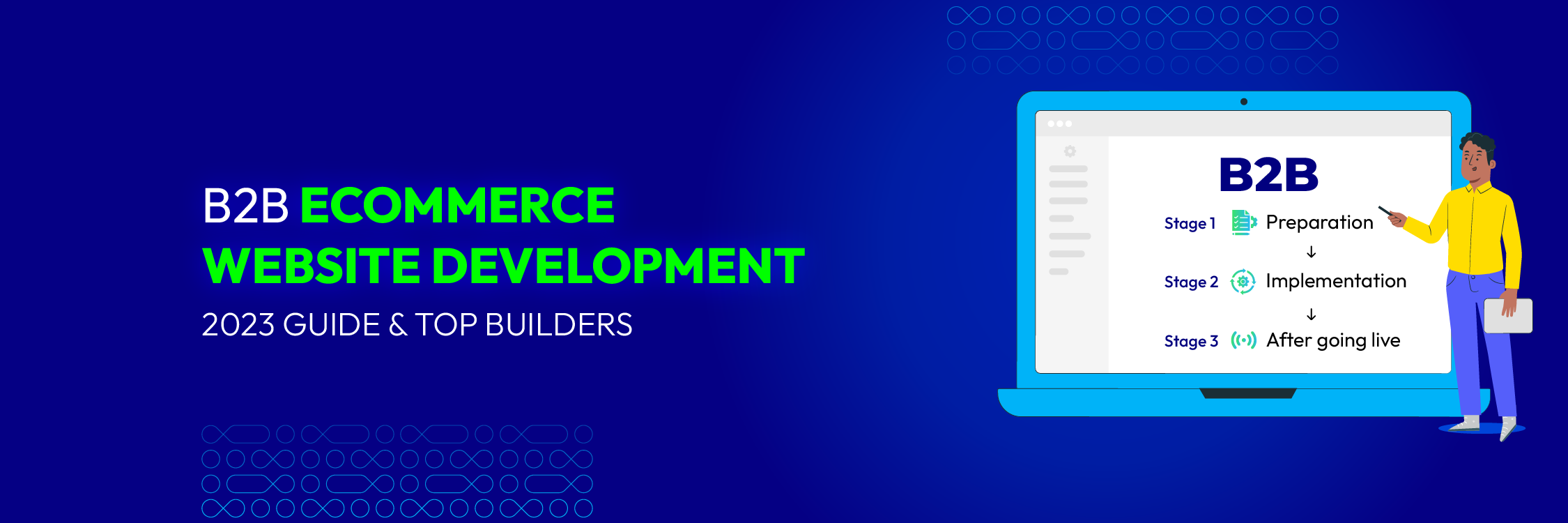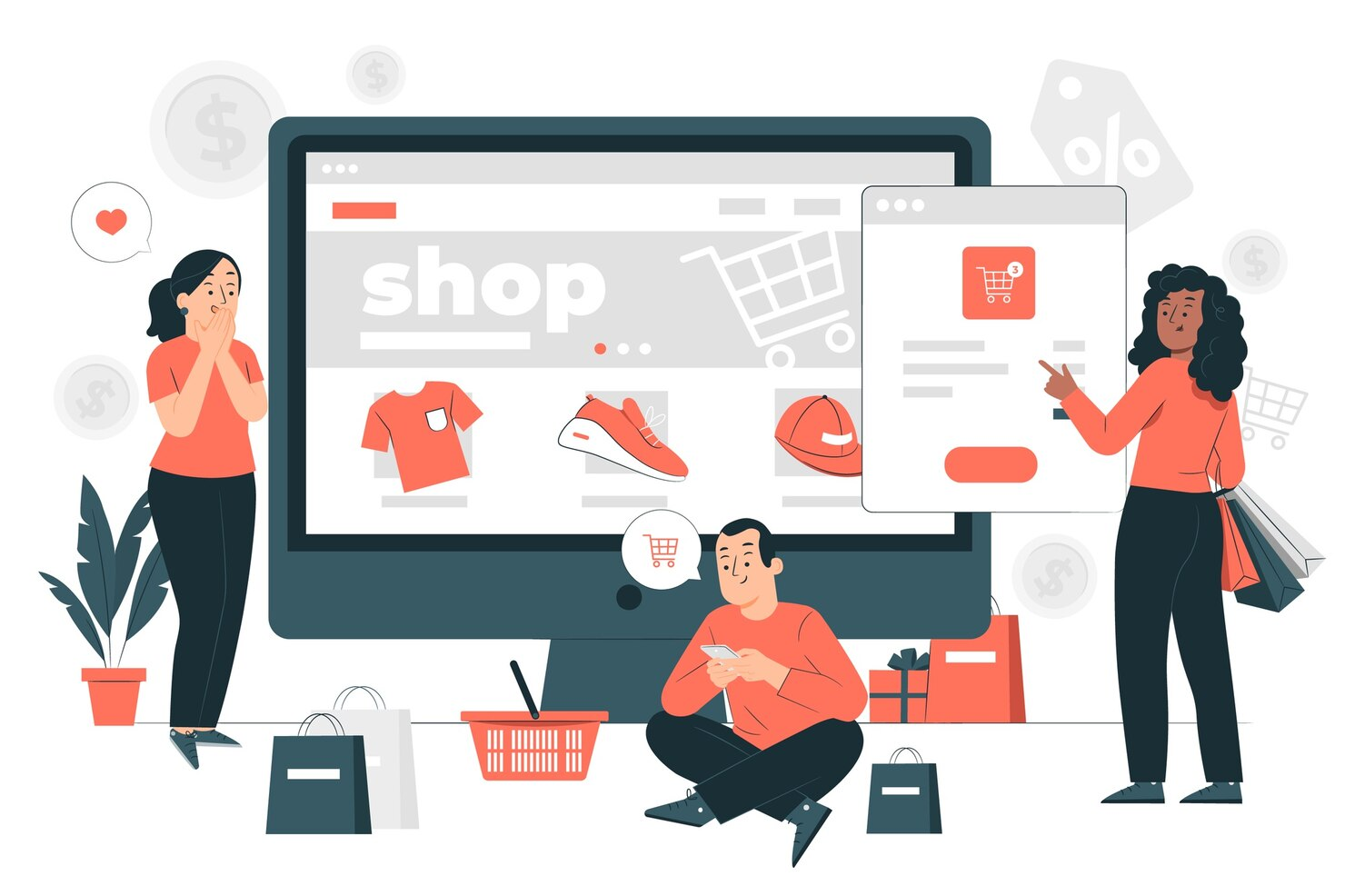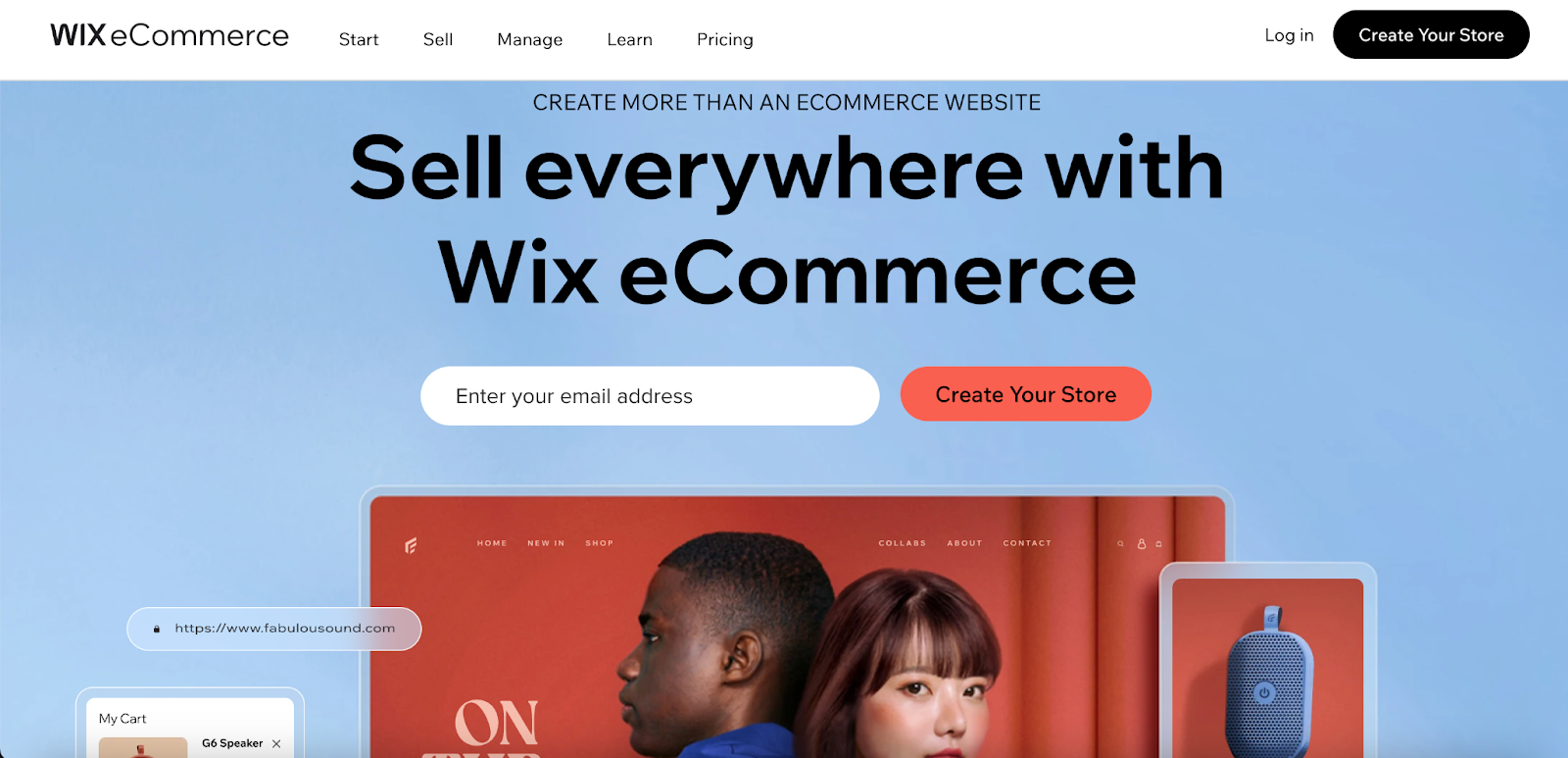Hyvä Theme is Now Open Source: What This Means for Magento Community - Mageplaza
Hyvä is now Open Source and free. Discover what changed, what remains commercial, how it impacts the Magento ecosystem, and how to maximize its full potential.
Summer Nguyen | 03-05-2024

A visually appealing, efficiently structured, and easy-to-use website is like a secret weapon for businesses. It helps them sell more stuff. But when it comes to B2B ecommerce website development, even really smart web developers can run into problems.
B2B businesses, which sell their products to other businesses, have extra challenges compared to regular stores. They deal with complicated operations, different ways of selling, lots of types of products, and more.
In this blog, we’re going to guide you on how to make a website that’s strong and lasting, meeting the tough demands of business clients. Let’s dive into the process of creating a B2B ecommerce website in simple terms.

Finding what you want on a website can be tough if the search tool isn’t great. Instead of relying on the basic setup, investing in a special search feature can make your products stand out. Some tools even finish your search for you, fix mistakes, or show similar product pictures.
When you create your online store, having easy-to-follow directions is crucial. It’s like a map guiding customers to the right products. Combining easy navigation with helpful info lowers the chance of people leaving your site too quickly. If customers can’t find the right info, they might leave without buying, and that means lost sales for you.
Just listing a product name, basic info, and pictures might not be enough, especially for B2B businesses with big orders. Detailed info builds trust and helps customers decide whether to buy. Including measurements, part numbers, or spec sheets can make it easier to turn visitors into buyers.
For B2B orders, being on time is super important. Late deliveries can lead to fines. Have a tool on your site so customers can track their orders or get emails about the order status.
Make sure your website loads fast for a better user experience. People stay longer on faster sites and are more likely to buy. Google even looks at site speed when ranking websites. The higher your rank, the more customers you attract.
Checkout is a big deal for every online store, and for B2B stores, it can be even trickier. The goal is to reduce cart abandonment. Offering options like guest checkout, flexible payments, saving address info, and repeating past purchases can help.
B2B transactions don’t always need quick payments like B2C ones. Giving different payment choices, like credit, debit, or offline methods, helps customers find what works for them. Be careful with high-value orders to avoid security risks. You can set specific payment methods for different products or order values.
In general, we suggest dividing the process of developing a B2B ecommerce website into 3 stages: preparation, implementation and after going live.
Before diving into a project, take the time to really understand who your customers are. Market research and niche analysis are crucial. Unlike B2C (business-to-consumer), defining B2B (business-to-business) customers is trickier because multiple individuals are usually involved in making buying decisions.
Identify your target audience and create customer personas to align your website with the needs of corporate clients. This involves tailoring the user interface, visual elements, professionalism, design, content, and other aspects of your B2B ecommerce website to match their behaviors.
If you run a big company, you might have more funds to invest in your ecommerce website. However, for smaller businesses, it’s essential to carefully evaluate your resources, including finances, manpower, and technological capabilities.
Websites come with features that vary based on coding expertise and usability, and the costs can differ widely. Therefore, understanding your company’s capabilities is crucial in selecting the right platform.
Before making significant decisions that impact your business, merchants should consider their goals and targets. Whether it’s attracting more buyers, improving customer experience, or building trust, your B2B ecommerce website development should align with these objectives.
Outline your B2B ecommerce platform requirements after clarifying your goals. This ensures that your website is developed with a clear purpose in mind. Engaging professional ecommerce development services can further streamline the process, ensuring that your platform is both functional and optimized for your specific business needs.

Picking a platform for your website can be overwhelming with options like Magento, Shopify, Wix, and more. To simplify the decision, it’s helpful to categorize platforms into two types: hosted and non-hosted, to understand their workings and narrow down your choices.
A hosted platform provides an all-in-one solution, offering both hosting and software for your website. However, customization options may be limited, and you might not have access to the code. Examples of hosted platforms include Wix, Shopify, and WordPress.
Think of a hosted platform like renting a space. While you can’t extensively modify it to suit future business expansion, it provides everything you need for your site, including hosting, domain registration, software, maintenance, and security.
A non-hosted platform involves open-source software that you can freely download and modify as you wish, like owning a house. Though the software is often free, you’ll need to hire a hosting service and purchase a domain. Building a website on non-hosted platforms requires technical knowledge, so having a skilled development team is crucial.
Magento Commerce is one of the optimal non-hosted B2B ecommerce platforms. It offers the flexibility to build engaging and well-organized websites. Whether creating a new online store or migrating an existing ecommerce system, Magento Commerce provides B2B-specific features catering to the unique needs of B2B merchants.
Securing a domain is like getting an ID card for your website, confirming its existence. You can acquire a domain from various providers at different price points.
Similarly, hosting services are necessary to store website elements like systems, images, videos, etc. Since using your own computer is risky due to potential IP address changes, hosting ensures content security and allows consumers to access your B2B website from any location.
Ensure the security of your website by engaging a highly skilled offshore development team. An effective B2B ecommerce website development team should possess a workforce capable of handling diverse tasks, boasting extensive experience and a broad spectrum of expertise. With a team of this caliber, you can expect optimal solutions and swift problem resolution.
Moreover, it’s essential to establish effective communication with your team, ensuring that everyone is on the same page. Regular weekly meetings should be conducted to monitor the progress of the project. The partner’s workflow should be streamlined to guarantee timely project completion.
Before finalizing your team selection, scrutinize their portfolios. Assess their qualifications by reviewing their past projects. A proficient development team should have a track record of successfully completing various types of projects, including those similar to yours. This demonstrates their ability to construct your project with the necessary expertise and experience.
Recognize that the layout is the initial aspect that captures people’s attention before they delve into your content. A dull appearance is unlikely to spark user interest and is unlikely to generate significant sales. Your website template serves as a conduit for conveying messages precisely and loudly expressing your brand voice.
For businesses or organizations looking to streamline the UI customization process, Shopify stands out as an excellent ecommerce platform choice. It provides a plethora of ready-to-use themes tailored for both B2B and B2C websites.
Upon completing your project, the natural inclination is to promptly launch your site. However, it’s crucial to pause and assess your website’s performance. Testing enables store owners to view the site through their customers’ eyes and make essential adjustments. Several considerations should be taken into account:
Examine for broken links or bugs.
Confirm the user-friendliness of your website.
Ensure your site is devoid of grammatical and spelling errors.
Maximize traction and traffic by guaranteeing your website’s compatibility with all devices.
After assessing your website’s performance and making necessary adjustments, it’s time to launch. Going live allows you to better understand your clients’ demands and needs. Keep in mind that you can continue to review and make changes as you run your online business. This ongoing refinement will help attract more potential clients to your website.
To initiate your journey into digital marketing, it’s essential to focus on tasks like maintaining blogs, generating additional content to inform clients about your goals, and employing straightforward strategies such as SEO and email marketing. Once your audience has subscribed to your mailing list, you can then delve into refining your email marketing techniques.
Additionally, it’s crucial to establish a compelling and informative blog library. To enhance your effectiveness in crafting blog content, engage in keyword research to pinpoint the most suitable phrases for your website. Keyword research tools like Keyword Planner, Keyword Tool, and SEMrush can offer valuable insights into high-traffic keywords.
Regularly assessing your website’s performance is crucial for pinpointing gaps and implementing necessary adjustments. By employing tracking codes, generating detailed monthly reports, and conducting behavior analysis, you can gain a comprehensive understanding of your website’s issues.
Merchants should pay attention to several key factors, including:
Monthly organic traffic and traffic from various sources like social channels, paid advertisements, and more.
Conversion rate.
Sales volume.
Order value.
Return on advertising spend.
Customer time on site.
Bounce rate.
Cart abandonment rate.
If your B2B website is unable to meet both present and future scalability requirements, it becomes necessary to enlist maintenance and upgrading services.
Ensure the absence of any security vulnerabilities or gaps.
Ensure the smooth functioning and management of business operations.
Enhance the user experience.
Additionally, adjustments to your website are imperative for business growth. This involves incorporating extensions and customizing your online store to align with the expanding scale of your operations.

Shopify provides a selection of over 70 premium and free ecommerce templates, offering flexibility to create the ideal online store for your business. Each plan includes 24/7 customer support, and up to two Shopify staff members will dedicate their time to assist you in building your online store.
For beginners, the availability of such customer support should be a top consideration when searching for the best B2B ecommerce website development team.
Key features:
Over 100 themes by renowned designers like Happy Cog and Pixel Union
Built-in shopping cart for seamless mobile and tablet purchases
Full access to HTML and CSS for complete website customization
Unlimited bandwidth, ensuring no charges based on traffic volume
No restrictions on the number of products a store can sell
Simplified reporting and analytics tools for performance insights
Pros:
Easy website setup
Integration with over 6,000 apps
24/7 customer support
Recover abandoned carts
Enjoy shipping discounts up to 88%
Cons:
Restricted customization options
Higher costs for premium plans
Limited availability of free themes
Transaction fees apply without using Shopify Payments
Pricing:
Free trial available
Paid packages starting at $29 per month when paid annually.

BigCommerce, a prominent player in the ecommerce industry, offers a diverse range of templates and themes to assist stores in achieving an appealing and rapid setup.
Similar to Shopify, BigCommerce features an intuitive visual editor that enables users to personalize every aspect of their store’s appearance without requiring coding knowledge.
Users enjoy the benefits of flexible product management, SEO tools, and a variety of integrated marketing tools and analytics. The platform supports over 65 payment gateway integrations, and shipping details can be tailored to meet the specific requirements of the business.
A generous 15-day free trial allows users to explore the service before deciding if BigCommerce is the optimal ecommerce website builder for their needs.
Key features:
Visual editor for easy page editing with drag-and-drop functionality.
Customizable themes using HTML, CSS, and Javascript.
Checkout customization via server-to-server API and SDK.
Digital wallet payment options, including Amazon Pay and Apple Pay.
Cross-channel commerce integration with Amazon and Google Shopping
Multi-currency and multi-language support for global sales.
Pros:
Cons:
Tailored for big ecommerce enterprises
Plans come with annual sales volume restrictions
Pricing:
15-day free trial available
Paid packages starting at $29 per month when paid annually

Wix solidly claims its position as the premier ecommerce site builder in the market, boasting an impressive combination of high-quality templates, user-friendly store-building tools, extensive product catalogs, and a vast array of ecommerce add-ons and extensions. With over 200 million users worldwide, Wix caters to everyone, from beginners to seasoned store owners.
Wix’s site builder provides easy access to essential ecommerce features. Users can seamlessly sell both digital and physical products, offering customizations such as size and color, along with detailed descriptions incorporating text, images, videos, and more.
The B2B ecommerce website development platform offers a comprehensive set of tools for managing crucial ecommerce tasks, including customizable shopping carts, payment processing, order fulfillment, shipping management, and inventory control. Wix also excels in supporting store marketing, promotions, and extends its functionality through an impressive app market with numerous integrations for various services and platforms.
Key features:
Editing interface for constructing online stores
Templates for personalized site design from storefront to checkout
Integrations facilitating sales on Facebook, Instagram, Google Shopping, and eBay
Free SSL certificate for customer information and payment security
SEO-optimized product pages for enhanced search engine rankings
Capability to import store inventory through CSV files
Pros:
Cons:
Pricing:

Squarespace fulfills its commitment to providing users with “everything, to sell anything,” offering a versatile platform that goes beyond physical goods. It features easily customizable templates, allowing users to craft online stores that not only showcase products but also facilitate the booking of services.
The platform’s intelligent tools include a feature suggesting relevant products, enticing customers to explore and discover more within your store.
Squarespace streamlines the setup process into six simple steps. Users begin by selecting an ecommerce template and initiating a free trial. Subsequently, they register or transfer their business’s domain name, set up the online store by adding products and connecting a payment processor. Customization involves tailoring the online store, leaving users with the tasks of growing through email marketing and optimizing for SEO.
Key features:
Drag-and-drop builder featuring templates and starter layouts
Responsive web designs with image scaling capabilities
Custom WYSIWYG editing supporting diverse content types and complex layouts
Capability to sell an unlimited number of products
Automatic post-purchase email sequences
Extensions for finance, marketing, shipping, and sales functionalities
Pros:
Includes features for selling both services and products
Allows the sale of subscription products (available in the advanced plan)
Cons:
Pricing:
3-day free trial available
Basic Commerce plan starting at $27 per month when paid annually

Web.com’s user-friendly ecommerce platform empowers novices to effortlessly grow their online businesses. The all-in-one solution allows seamless management of daily tasks, including listing products on your site and major online marketplaces. The drag-and-drop builder simplifies order management, while customization options for features like sales banners and “Buy Now” buttons enhance the user experience.
The “Essentials” plan includes fundamental features for small ecommerce businesses, along with free expert design support, private domain registration, SSL certificate, and over 150 mobile-optimized templates.
Key features:
24/7 automated inventory sync
Multi-channel selling support
Reliable around-the-clock phone support
Pros:
User-friendly website builder with an intuitive interface
Free domain name provided for the initial year of usage
Cons:
No free option available
Inability to switch templates
Restriction on the number of products you can list
Pricing:

Weebly, recognized for its user-friendly site-building solution, ensures a seamless shopping experience for customers through a fully integrated shopping cart and secure checkout directly on your ecommerce site. Upon creating a store, Weebly’s shopping cart software is automatically set up, enabling immediate selling.
Weebly’s mobile apps for iPhone and Android allow on-the-go store management. Users can process orders, offer personalized service, upload products, notify customers of shipments, monitor real-time sales figures, and receive order notifications.
Key features:
Effortlessly rearrange elements with the drag-and-drop editor on Weebly.
Choose from over 50 easily editable templates.
Ensure mobile-friendliness with responsive themes.
Quickly start an online shop with Weebly’s eCommerce features.
Easily add video backgrounds to enhance your site.
Enable hassle-free site search for visitors.
Pros:
Flexibility to manage a range of products
Free SSL security
Ease of use
Cons:
Lack of multi-channel selling
Limited ability to sell products on platforms like Facebook and Instagram
Pricing:
Free trial available
The Performance plan starts at $26 per month when paid annually
Engaging in B2B ecommerce proves to be a valuable strategy for attracting new customers and generating revenue for your business. It is imperative to define goals and assess available resources before embarking on website creation. This ensures a clear vision of the website’s appearance and the essential functions it should possess.
For the development of an appealing website, opting for a B2B ecommerce website development team is the optimal choice. Key elements of reliable outsourcing partners include customer-focused service, reasonable pricing, and efficient progress.